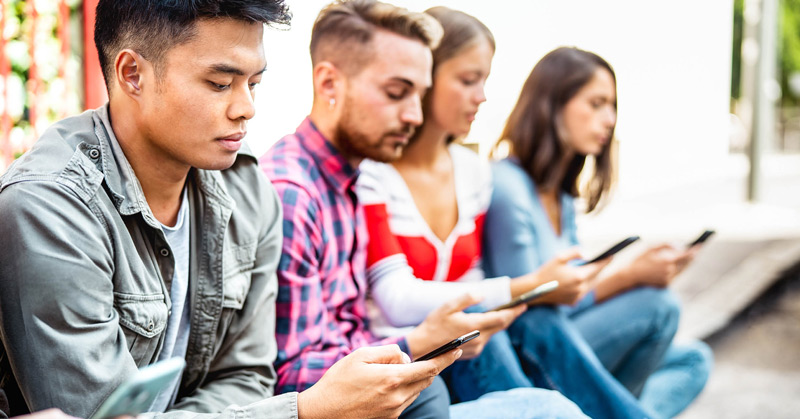
Today’s world is a digital one and we’re spending more time online than ever before. Still, while the benefits of browsing may well outweigh the cons, if we don’t use our time on the internet carefully, it could have a negative impact on our mental wellbeing.
A recent study found that, for some people, spending an excess amount of time on social media platforms such as Facebook and Instagram have an association with mental health conditions like anxiety and depression.
While more in-depth research is required, here are some tips on how to be more mindful of what you consume online in order to protect your mental health.
Identify Your Triggers
Every time you go online, pay attention to how you feel. If you notice that you're feeling negative emotions, be it anger or anxiety, step away from the screen – but take note of what upset you. Whether it’s reading about stress-inducing global disasters or watching your ex take their new partner on a tropical holiday, if it made you feel bad, it’s time to stop looking. Alternatively, make a point of drastically limiting your exposure.
Curate Carefully
Speaking of that ex, who else are you following on social media? Consider how you feel when certain people or accounts pop up. If it makes you feel anything negative, it’s perfectly fine to unfollow, mute or even block. If you do this ruthlessly, something like a Twitter timeline or Facebook feed that once made you angry, insecure or depressed can become a place where you’re only exposed to the people and things you enjoy as well as inspired by content that makes you feel good.
Take A Break
You don’t need to go on a month-long digital detox to enjoy the benefits of a break. Rather take several every day. We’ve all been bored and gotten sucked into a “doom scroll” – flicking through endless reels before realising we’ve lost two hours we’ll never get back. Rather make a habit of distinguishing between when you have to be online versus when you’re mindlessly scrolling. If you recognise you’re lingering, pop back into the “real world” to get those dishes done, call a friend or take a walk. When you reduce your time online, you reduce your risk of potentially experiencing any negative effects.
Avoid Online Arguments
The world is a big place. Everyone has an opinion. If someone happens to post something that you don’t agree with it, it’s okay to simply scroll on by. If their opinion is unpopular enough, chances are someone else might take them to task about it, but it doesn’t have to be you. Same goes for when you’re on the receiving end of criticism from a virtual stranger with no real relevance in your life. At the end of the day, even when you win an argument on the internet, you’re still raising your blood pressure. The real win is to protect your peace of mind and simply not engage.
The Bottom Line
Be mindful of how you spend your time online. Social media can be a great tool for keeping connected, but it can also be a source of stress and anxiety. Getting in tune with how your online experience makes you feel and making a point of limiting your exposure to negative or triggering content will go a long way to protecting your mental health and wellbeing.